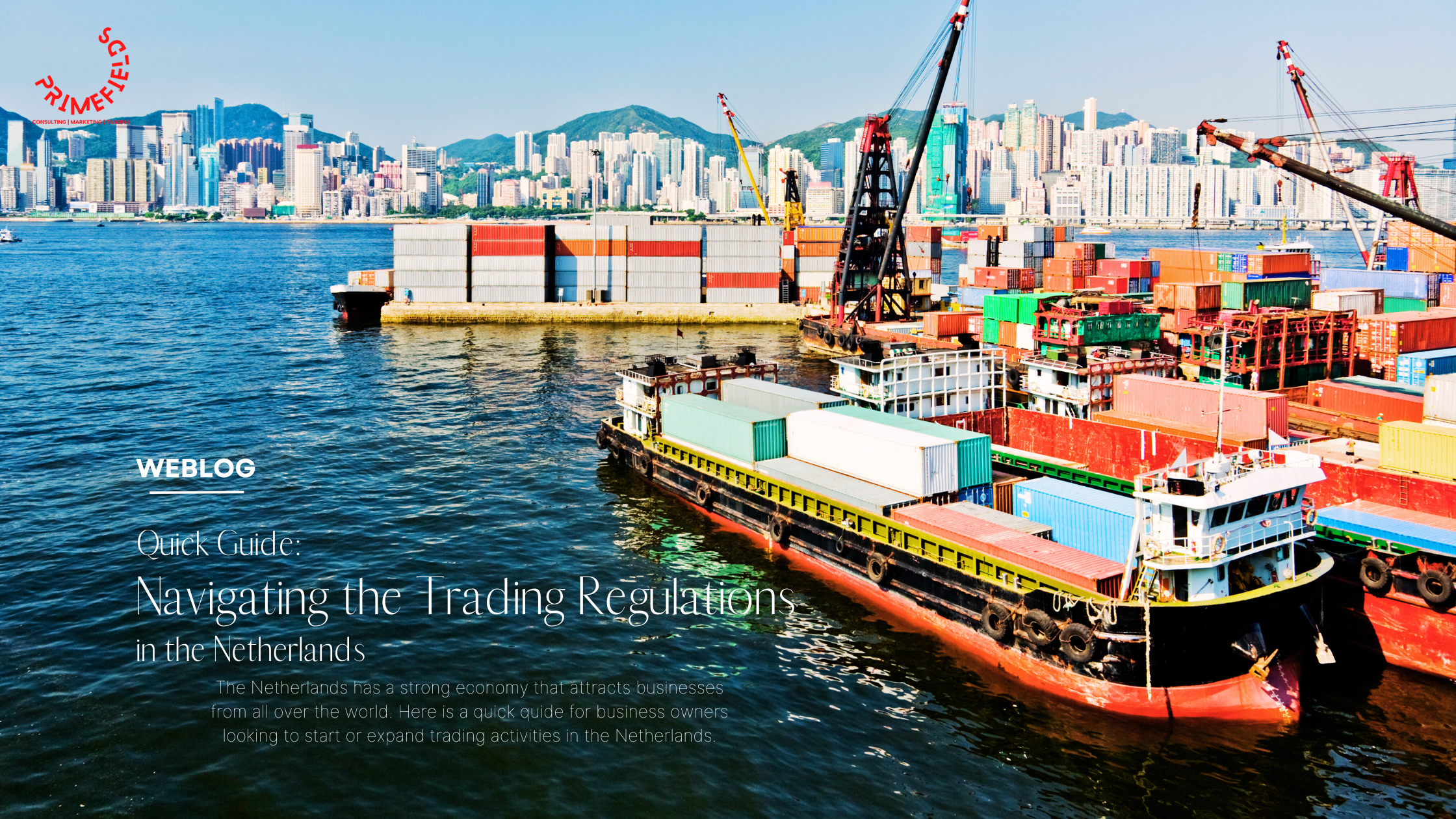The Netherlands has a strong economy that attracts businesses from all over the world. However, like any other country, the Netherlands has its own set of regulations when it comes to trading. If you are a business owner looking to start or expand your trading activities in the Netherlands, it is important to understand these regulations to avoid legal issues.
In this article, we will provide you with a quick guide to the trading regulations in the Netherlands. We will cover the different types of trading activities, the relevant laws and regulations, and how to comply with them.
Types of Trading Activities
There are different types of trading activities that you can engage in as a business owner in the Netherlands. These include import and export, wholesale and retail trade, and e-commerce. Each type of trading activity has its own set of regulations that you need to be aware of.
Import and Export
If you are importing goods into the Netherlands or exporting goods from the Netherlands to another country, you need to comply with the relevant import and export regulations. These regulations include customs duties, VAT, and excise duties. You also need to ensure that the goods (such as foods, garments, machinery, etc) you are importing or exporting comply with the relevant safety and quality standards.
Wholesale and Retail Trade
If you are engaged in wholesale or retail trade in the Netherlands, you need to comply with the Dutch Commercial Practices Act (Wet Oneerlijke Handelspraktijken). This act sets out rules on advertising, price information, and contract terms.
E-Commerce
If you are engaged in e-commerce in the Netherlands, you need to comply with the Dutch Distance Selling Act (Wet Koop op Afstand). This act sets out rules on pre-contractual information, delivery, and returns.
Relevant Laws and Regulations
In addition to the regulations specific to each type of trading activity, there are also general laws and regulations that apply to all businesses in the Netherlands. These include the Dutch Civil Code (Burgerlijk Wetboek), the Dutch Company Law (Wet op de Ondernemingsraden), and the Dutch Employment Law (Wet op de Ondernemingsraden).
Compliance
Compliance with the trading regulations in the Netherlands is essential, to avoid legal issues. To ensure compliance, you need to keep up-to-date with changes in relevant laws and regulations, and implement internal policies and procedures in your business.
Conclusion
The Dutch economy offers many opportunities for businesses. However, as a business owner, it is important to understand the applicable trading regulations to access these opportunities, and to avoid legal issues. By understanding the different types of trading activities and compliance requirements, you can be on track to build your business legally and successfully in the Netherlands.


